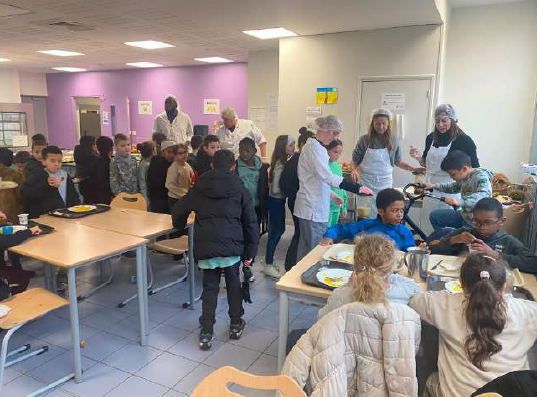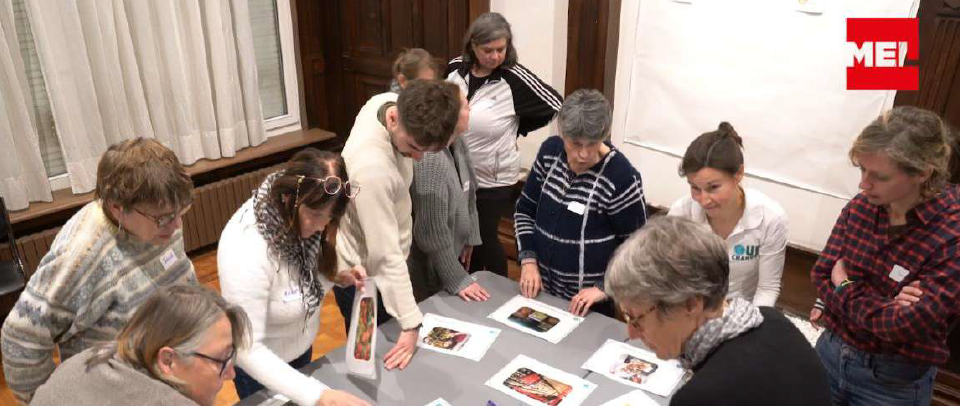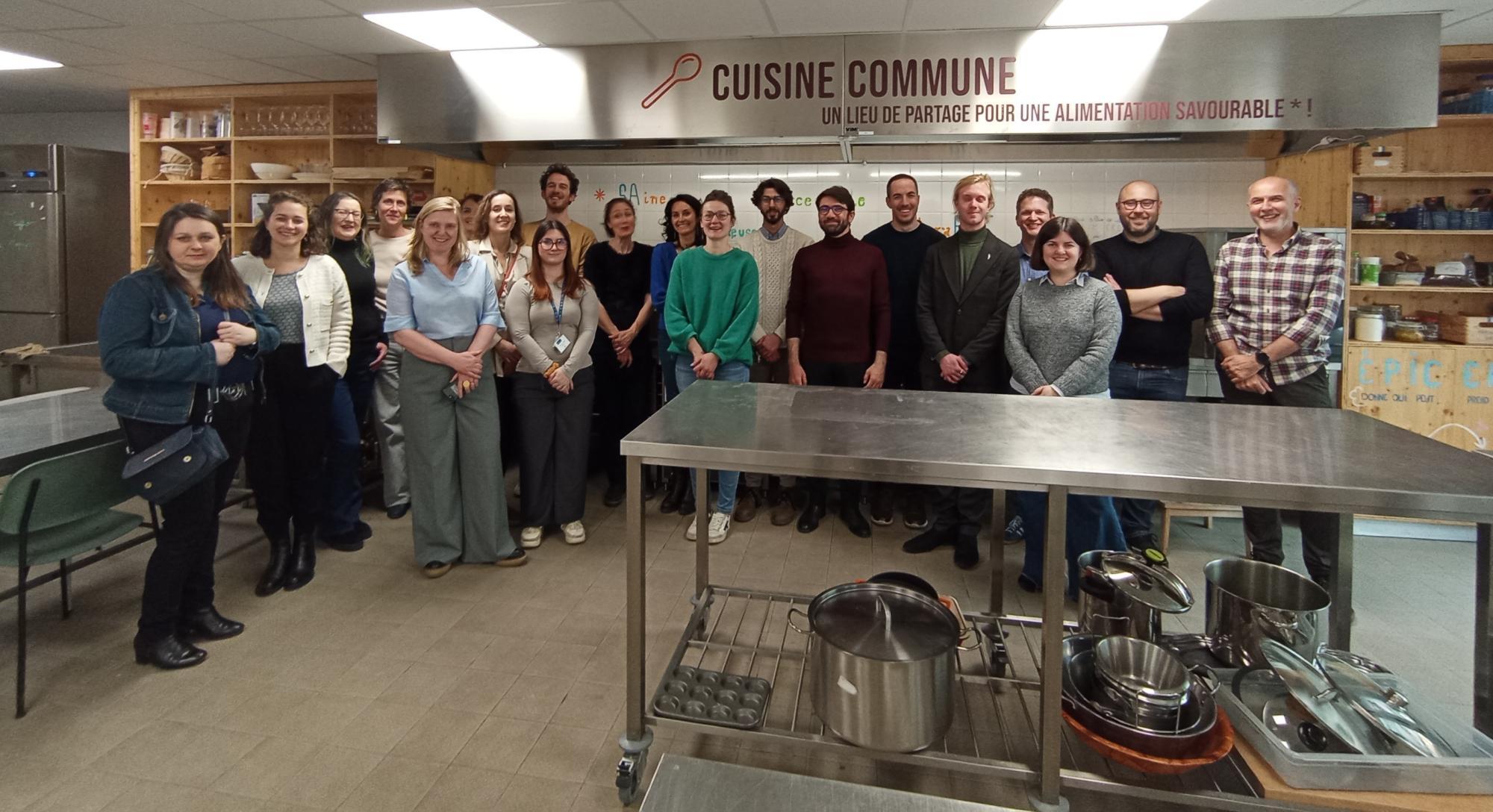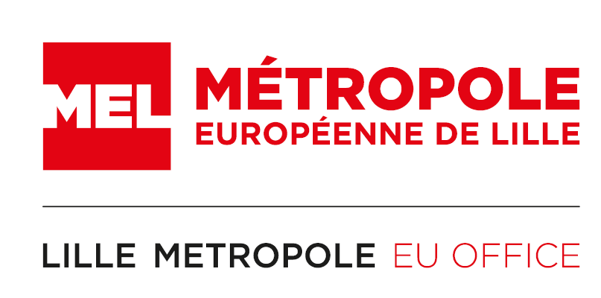
According to ADEME (France’s national agency for energy and ecological transition), nearly 10 million tons of food are thrown away every year in France. That's the equivalent of 155 kg of food per person and around €16 billion in commercial value.
This waste also represents a needless extraction of natural resources (arable land and water) and significant greenhouse gas emissions, estimated at 3% of total national emissions.
All stages of the food chain are affected by waste: production, processing, distribution and consumption. In the Lille Metropolitan area, the sectors that generate the most food waste are consumption (43%) and production (32%).
This is why Lille Metropole has committed to a 50% reduction in food waste in its territory, in line with the French Anti-waste law for a circular economy (AGEC) of February 2020.
Providing support to local schools canteens and catering services
Following the AGEC anti-waste law and to help achieve the goals set out within it, Lille Metropole has been providing a year-long support scheme for local schools and caterers, focused on food waste reduction. Since 2021, already 40 schools have benfited from this program, out of the targeted 200. The support scheme is a year-long program which is put in place with all relevant stakeholders, from project coordinators to catering staff to school personnel, as well as the children themselves and their parents. The program evaluates the food waste, as well as the financial loss incurred and the environmental impact of food loss, and helps all stakeholders take steps in order to reduce those numbers. So far, the support program has led to an average of 30% reduction in food waste in supported schools.

Contributing to EU Policy
Lille Metropole also contributes to policy on the EU scale : in April 2025, Lille Metropole was invited by the European Commission to present and discuss local strategies and projects that reduce food waste at the EU Platform on Food Losses & Food Waste, within the action and implementation working group, thereby shaping policy proposals.
This was an invitation from the european cities network Eurocities, and it enabled Lille Metropole to give a few examples of local good practices which can be replicated in other territories. The main initiative presented by Lille Metropole during this meeting was the support scheme for local school canteens and catering services.
You can read more about the EU Food Loss and Waste Prevention Hub and check out the presentation at the following link.
Contributing to key european dates : the European Week for Waste Reduction
In addition to this support scheme, Lille Metropole organised a variety of events and activities during the European Week for Waste Reduction (EWWR) in 2024. This included a variety of workshops, the creation of a directory of anti-waste partners in the metropolitan area and local challenges. In total, 63 activities were organised throughout the territory, in 27 of Lille Metropole’s municipalities that account for over 60% of the total population of the territory.

Other European Initiatives
Social Circular Food Webs project
Beyond local initiatives and contributions to EU policy, Lille Metropole is also active in a variety of european initiatives. For instance, Lille Metropole is part of the Interreg project Social Circular Food Webs, a european project that aims to improve policies that support local food circuits in order to make them more effective, sustainable, connected and inclusive based on the principles of the circular economy model.
The Interreg project centers on interregional learning between 8 European regions to exchange experiences, work together on policy improvements and monitor the results of these improvements. Best practices will be shared with the wider european community to inspire better policymaking and contribute to the transition to a sustainable european food system. Learning will focus on three key themes:
Developing food waste prevention networks for social and environmental benefits ;
Management of food redistribution and monitoring technologies ;
Supporting new business models in food surplus distribution.
Social Circular Food Webs will build regional capacities to develop strong multi-actor networks in order to reduce food waste and strengthen food security.
You can find out more about this project by checking out our article on the topic right here.
Lille Metropole is a partner of the Urban Agenda for the European Union Food Partnership
Lille Metropole is also a member of the Urban Agenda for the European Union Food Partnership. You can read more about the partnership, including about the in-person meeting hosted in Lille Metropole in March 2025, by clicking here.

Overall, Lille Metropole demonstrates its resolute commitment to food waste reduction through its local support schemes and dedicated events, through european projects and through policy contributions at the EU level.

